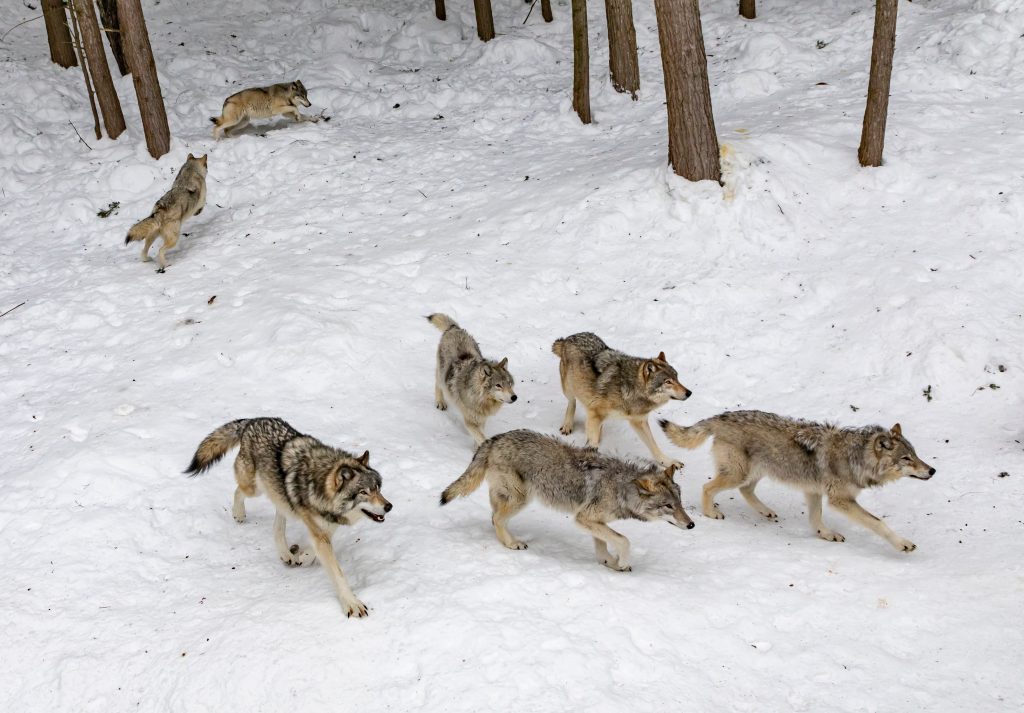Years ago, when The Dog Whisperer was having his era of fame, I saw an episode in which he was introducing a poorly socialized dog into his rehabilitative pack. It was a tense moment, where both pack and outsider made threatening gestures at each other, and as I remember it there was an implication that the pack might attack and destroy the outsider if it couldn’t relax and submit to connection. The pack was a unit of dogs with social cohesion, affection, and safety, and they weren’t going to let this stranger come in and screw it all up.
Since learning about the consequences of chronic loneliness, I’ve found myself frequently thinking about that moment. People who have been lonely too long tend to be more on alert to signs that they’re going to be rejected, and they’re more likely to protect themselves in ways that end up being hostile or off-putting to others.
Those lonely people are desperate to connect, and terrified of the emotional pain of being rejected. But none of that is apparent from the outside except to those who have been through it or who are unusually emotionally sensitive and aware. From the outside, it looks like a person abruptly turning into an asshole without any clear reason. Or the lonely person abruptly canceling plans and severing relationships, or sending out aggressively self-deprecating comments that no one can argue away.

I think about that outcast dog with its likely history of trauma and ostracism, so keyed-up and tense that it can’t relax and connect with the pack even if it that’s all it wants. It feels unfair that the pack would reject it for its struggles with rejection. But that comes from my own over-identification with the outcast dog. From the perspective of the pack, which had clearly absorbed and rehabilitated many dogs over the years, it could only tolerate so much resistance. Being too fixated in the anti-social consequences of chronic loneliness could threaten the coherence of the group.
When I was at my loneliest, I was also at my most toxic—self-righteous, condescending, withdrawing into stony silence when hurt, being self-consciously weird, making very cruel statements about myself as though that’s what others thought of me. Now I can see how much I was caught in my own suffering and setting up an obstacle course for anyone who was trying to connect with me, to keep myself safe, but that safety only perpetuated the loneliness.
I identified more with the lonely, misunderstood, bullied outcast, but as I found belonging I also participated in cruelly teasing other young folks at school who were more outcast than I. I regret that behavior now, and have since felt sensitive to the dangers and cruelty of those who belong against those who are experienced as different.
What disquiets me lately is considering the merits of protecting the boundaries of your group against people who cannot tolerate connection and participate meaningfully. The “lone wolf” shooters whose apparent loneliness and lack of purpose makes them vulnerable to turn their anger and hurt into murder. The person who always speaks up about how terrible the group is, and tears relationships apart with triangulation, but never accepts compromise and never comes to the meetings where you can actually address their problems.
Having spent years trying to build inclusive, equitable, just community, I believe that this will always be an aspirational project. There will always be more work to do, but also there is a way in which it is impossible to be a group that includes and accommodates every single person. Every group forms a culture, and part of being in that group means absorbing and being absorbed by its culture.
For example, some groups make plans and begin promptly at the time stated (at least, I imagine this must be true. Could you tell me where they are?) while others start their meetings when everyone shows up, even if that takes an hour. Neither of these are wrong in an objective way but both create their own inconveniences that you have to learn to live with if you want to be a part of things. Being an on-time person in a late group may mean learning how to be flexible, to accept this is how things will go, and to start planning for the lateness. Being a late person in an on-time group may mean learning how to organize yourself to get there on time, or to accept that you’re going to miss things. But it means learning to accept this is how the group works, it’s not personal to you, and you’ve either got to adapt or work really hard to change the group culture.
There is absolutely an unfairness when people who are struggling emotionally, socially, or mentally have difficulty connecting in a community that does not understand them. But it’s also unfair to expect everyone in your world to be prepared to be a therapist at a moment’s notice, to intuit the conflict happening inside and intervene in a way that means the lonely person feels totally safe and never has to take a risk. That does happen, once in a great while, and it’s absolutely beautiful. But the beauty is defined by its rareness.
We have to learn how to connect, and connection is a living, ongoing process of taking risks. We have to honor that risk-taking is hard and dangerous and we need to have a plan and resources for taking care of ourselves when the risks go poorly. But we also have to honor that nothing happens without our risk-taking. We can’t expect everyone we meet to know the right language to use that makes us feel safe, or that people will meet our needs without our having to ask for it, or that people will know or respect our limits without us standing up for them.

